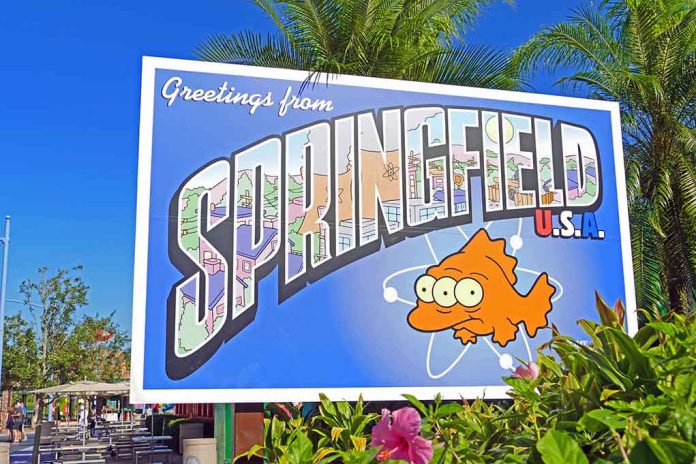
Ohio mobilizes state troopers and funds to a city in crisis due to a sudden rise in Haitian migrants—discover what this means for the community and the state’s future efforts.
At a Glance
- Governor Mike DeWine sends law enforcement and millions in resources to Springfield amid migrant surge
- Springfield witnesses an influx of roughly 15,000 temporary Haitian migrants since 2020
- DeWine supports the Temporary Protected Status program but presses for more federal support
- Ohio allocates $2.5 million for primary healthcare and deploys state troopers to mitigate traffic issues
- Ohio Attorney General explores legal measures to manage migration impact
Ohio’s Immediate Response
Facing an overwhelming surge of Haitian migrants in Springfield, Ohio Governor Mike DeWine announced the deployment of state troopers and $2.5 million in assistance to bolster the city’s healthcare and public safety. This response intends to provide urgent relief and fortify regional security while tackling the complex needs of the migrant population.
Springfield has seen approximately 15,000 Haitian migrants since 2020. These individuals fled Haiti due to severe unrest and gang violence, seeking asylum in the U.S. The sudden influx has placed significant strain on public services, including healthcare and education. Governor DeWine acknowledges the challenges and highlights the necessity for coordinated state-level interventions to support overwhelmed communities.
Only problem with these uproar-sparking tweets about Haitian migrants eating Ohio pets: there are no such "reports," at least not to any police department in Ohio. Police there say they have no knowledge of any such incidents.
*One* person did post such a claim on Facebook. https://t.co/pZ8S4gAphO
— Doug Sovern (@SovernNation) September 9, 2024
Addressing Safety and Healthcare
The state’s plan includes deploying the Ohio State Highway Patrol to manage increased traffic issues, which stem from the sudden rise in population. DeWine pointed out that many Haitian immigrants have limited driving experience, necessitating enhanced driver education. This move aims to reduce dangerous driving practices and improve overall road safety in Springfield.
“The goal, of course, is to reduce dangerous driving regardless of who the driver is,” said DeWine, though he noted that many Haitian immigrants have limited driving experience and come from a country with traffic customs that significantly differ from America’s.
The $2.5 million allocation will support primary healthcare services for the next two years. Already, Ohio has provided resources for education, driver training, vaccines, health screenings, and translation services in Springfield. The Ohio Department of Health is working closely with local providers to expand primary care access, addressing the healthcare deficiencies that many Haitian immigrants faced back home.
Seeking Federal Support
Governor DeWine has openly stated he does not oppose the Temporary Protected Status (TPS) program, which permits Haitians to stay in the U.S. under temporary humanitarian relief. However, he stresses the crucial need for the federal government to back affected communities with more substantial aid and resources. This call for action intends to ensure a balanced sharing of responsibilities, without overburdening local infrastructures.
Ohio Attorney General Dave Yost is exploring legal avenues to limit the number of migrants sent to Ohio. This action represents a proactive stance to address the pressures that substantial, quick-moving migrations impose on communities.
I spent time in Springfield OH reporting on Haitian migration. Some of the nasty misinfo being echoed today was already circulating. I spoke to officer Jason Via, Deputy Director Public Safety: "We haven't really seen any of that. It's really frustrating"https://t.co/UuQC40S6MX
— Jasmine Garsd Garcia (@JasGarsd) September 9, 2024
Fact-Checking Claims and Community Reactions
Concerns have been raised by some residents and public figures about the behavior of the new immigrants. Unsubstantiated rumors about Haitians harming pets circulated widely, partly fueled by statements from former President Donald Trump and other notable personalities. However, both the City of Springfield and local law enforcement have denied any credible reports of such activities.
“These dramatic surges impact every citizen of the community, every citizen,” emphasized DeWine. “Moms who have to wait hours in a waiting room with a sick child, everyone who drives on the streets, and it affects children who go to school in more crowded classrooms.”
Authorities clarify that the actual number of immigrants is between 12,000 and 15,000, contrary to higher estimates. They also stress that no incidents of pet harm have been verified. These clarifications aim to dispel false narratives and focus on tangible community support measures.





